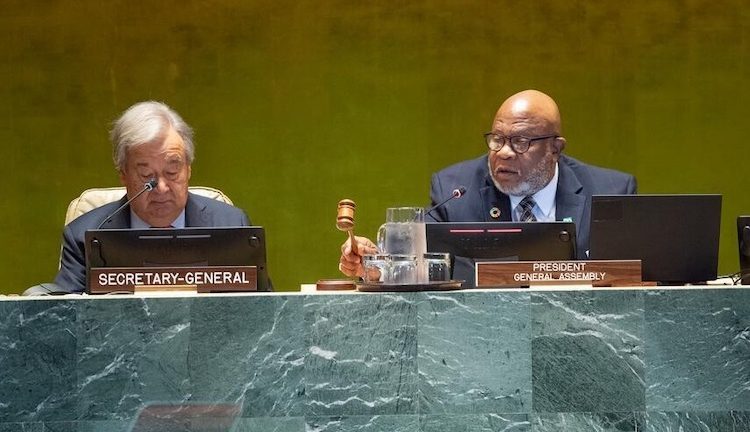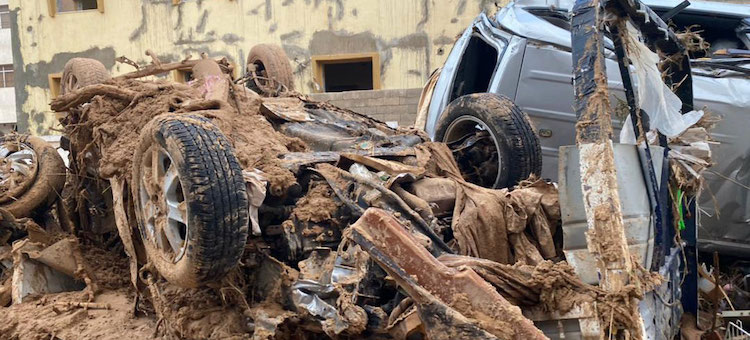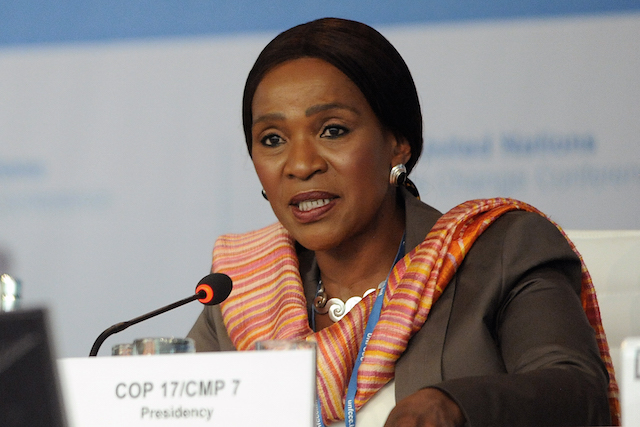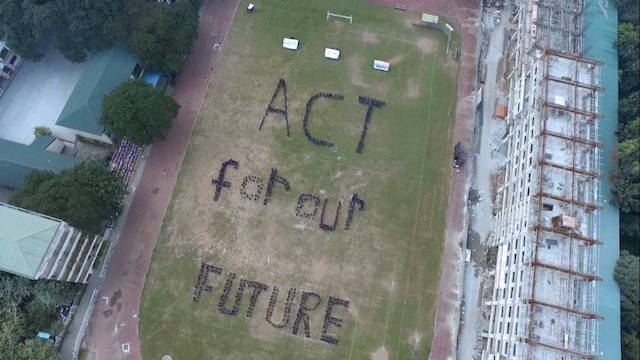By Arul Louis* UNITED NATIONS. 18 September 2023 (IDN) — UN Secretary-General António Guterres on Monday renewed his call for the reform of the “outdated, dysfunctional and unfair” World Bank and the International Monetary Fund (IMF) and for a $500 billion stimulus fund for the world organisation’s Sustainable Development Goals (SDGs). Speaking at the opening […]
Decaying Dams Blamed for ‘Worst Disaster’ in Libyan History
By Lisa Vives, Global Information Network NEW YORK. 17 September 2023 (IDN) — As stricken Libyans searched for signs of life amid the wreckage left by two enormous dams that burst in a hurricane-strength storm, anger was growing over warnings that were ignored but could have possibly prevented the worst disaster in the country’s modern […]
Global Heatwave Tells North and South that Climate Change Is Here
Analysis by Kalinga Seneviratne SINGAPORE. 5 September 2023 (IDN) — When heatwaves hit Southeast Asia, India and China in July, breaking temperature records across Asia, UN Secretary-General António Guterres said the “global boiling” era has arrived. And it didn’t take long for wildfires fuelled by high temperatures to spread across North America, Hawaii and Europe. […]
China’s Shandong Province Expands Its Footprint to The Pacific
By Kalinga Seneviratne SUVA, Fiji. 2 September 2023 (IDN) — A high-powered delegation of Chinese ocean and marine scientists and Asia-Pacific scholars from Shandong Province visited Fiji promoting South-South cooperation to mitigate climatic change—Pacific Islands’ biggest security threat. Facilitated by the Chinese Embassy here, Shandong Province and Fiji signed a memorandum of understanding (MOU) to […]
Polluters and Sufferers Push for Legally Binding Deal by COP21
By Jaya Ramachandran | IDN-InDepthNews Analysis
BERLIN | BRUSSELS | PARIS (IDN) – The UN Climate Change Conference (COP21) in Paris would be recorded in the annals of global negotiations if only because a block of wealthy nations responsible for contributing to global warming made a common cause with a group of developing nations suffering the dire consequences of climate change.
Humans Causing Sixth Mass Extinction of Species
By Robert J. Burrowes* | IDN-InDepthNews Analysis
DAYLESFORD, Victoria | Australia (IDN) – What do the Pyrenean ibex, St. Helena olive, Baiji dolphin, Liverpool pigeon, Eastern cougar, West African black rhinoceros, Formosan clouded leopard, Chinese Paddlefish, the Golden Toad and the Rockland grass skipper butterfly all have in common but which is different from the Dodo?
The answer is that these species all became extinct since the year 2000, that is, in the last fifteen years. The Dodo became extinct in 1662.
The one thing that all of these species have in common is that the cause of their extinction was human beings.
Developing Nations Need Hundreds of Billions To Address Climate Change
By Nozipho Mxakato-Diseko* | IDN-InDepthNews Viewpoint
PARIS (IDN) – Warming of the climate system is unequivocal. Concentrations of greenhouse gases have increased and as a result the atmosphere and ocean have warmed, the amounts of snow and ice have diminished, sea level has risen, and the impacts are being felt in particular by developing countries. According to the latest science, the emissions gap with respect to the 2 degree or 1.5 degree goal is not closing.
Thinking or Not Thinking About Tomorrow
By Julio Godoy* | IDN-InDepthNews Analysis
BERLIN (IDN) – A series of interviews with the German Economic Affairs and Energy Minister Sigmar Gabriel and with leading representatives of energy industries of the country, broadcast by the German public television network in run-up to COP21 in Paris, seemed to prove what critics of climate change conferences often claim: The governments of industrialised countries model their opinions and policies on the criteria laid down by private businesses.
Climate Summit An Opportunity for Accelerating Transformation
By J C Suresh | IDN-InDepthNews Report
TORONTO (IDN) – The Global Environment Facility (GEF) expects the twenty-first meeting of the Conference of the Parties (COP21) to the UN Framework Convention on Climate Change (UNFCCC) – from November 30 to December 11 in Paris – to be a “turning point”.
It expects COP21 to send “a loud and clear signal to citizens, markets and the private sector that the transformation of the global economy is inevitable, beneficial, and already underway”.
Governments from around the world are meeting in Paris to reach a new climate change agreement that aims to keep global average temperature rise below 2 degrees Celsius (3.6 degrees Fahrenheit) – the level beyond which there will be irreversible impacts.
Climate Marches Planned in 150 Countries Ahead of Paris Summit
By J Nastranis | IDN-InDepthNews Report
A thousand students from Rizal High School, in Pasig City, Philippines form a human banner that reads: “Act for our Future,” to call for a strong and fair global climate agreement ahead of the international climate talks in Paris. Credit: 350.org
NEW YORK (IDN) – In run-up to the start of the COP21 climate summit in Paris on November 30, hundreds of thousands of people will be taking to the streets in over 2,000 events spread across 150 countries to demand that negotiating parties keep fossil fuels in the ground and finance a just transition to 100% renewable energy by 2050.









